- Home
- Perrin Briar
Z-Minus Box Set 2 Page 3
Z-Minus Box Set 2 Read online
Page 3
“But hopefully I don’t spit like him,” Jacob said with a grin.
Jacob’s mother frowned, the crease lines in her face deep from use.
“Your father didn’t spit,” she said. “He was a gentleman.”
Jacob opened his mouth to say it was just a joke, and then thought better of it. He kissed his mother on the forehead. His mother tapped Jacob’s arm and smiled like she was about to divulge a great secret.
“I put my best cardigan on just for you,” she said.
“It’s lovely,” Jacob said.
“How did you do on your test today?” Jacob’s mother said.
“Test?” Jacob said.
“The one at school,” Jacob’s mother said. “I’ve been telling all the nurses about it. How you’ve been studying so hard because you want to join the Special Forces, like your father.”
Jacob’s eyes moved to the side.
“I, uh, did fine,” he said.
“That’s good,” Jacob’s mother said. “People can have all the money in the world, but if they don’t have duty and honor they don’t have nothing. That’s what your father used to say.”
“Right,” Jacob said. “But I am in the Special Forces now, Ma. See?”
He posed in his uniform. Another cloud came over his mother’s face. She startled, covering her mouth with a hand like she was an actor in a melodrama.
“How did I forget something like that?” she said.
“It’s the hectic life you lead,” Jacob said, trying to dispel the tension.
“I get so confused sometimes,” his mother said. “I remember some things, and then forget them the next minute. Other times it’s like I’ve got a wire crossed, only it takes me a while to remember it is crossed. Getting old ain’t no fun.”
“You’re not old,” Jacob said. “You’re just a little forgetful, that’s all.”
“I’m more than a bit forgetful,” his mother said. “Sometimes I forget what I’m talking about right in the middle of a, a, um…”
“Sentence?” Jacob said.
“Hm?” his mother said.
“Right in the middle of a sentence,” Jacob said, not sure if his mother was joking or not. But the deep crevasses were inscribed on her brow again.
“What is?” his mother said. “Speak up, Jacob. I do hate it when you mumble.”
“I’ll be back in a minute,” Jacob said. “I’m just going to see the nurse.”
Jacob’s mother smiled.
“Okay,” she said. “She probably fell for you like I did for your father. You’re the spitting image of your father.”
Jacob smiled, though he was dying inside. He backed out of the room and approached a nurse.
“Excuse me,” he said.
The nurse looked up from the documents she was filling out. Her scowl evaporated when she saw the young man in his smart uniform.
“Yes?” she said. “How can I help you?”
“My mother, Agnes Drew, how is she doing these days?” Jacob said.
“She’s a sweetheart,” the nurse said with a fond smile. “She gets a little muddled at times, but she always comes round in the end.”
“She’s getting worse,” Jacob said. “Is there anything we can do to help her?”
“She’s not violent or abusive,” the nurse said, though her tone suggested it would only be a matter of time before she was.
“She needs to go in a home,” Jacob said.
“That would be ideal,” the nurse said, nodding. “There are several in the state. A good one is right here, in Charlotte. My father went there when he had dementia. Would you like to see a pamphlet?”
“Yes,” Jacob said. “Please.”
He followed the nurse to a small office populated by miniature paper Towers of Pisa. He looked over his shoulder at his mother lying in bed, a lost expression on her face, a million miles away while she paid intense attention to the wall.
Buzz buzz. Buzz buzz.
The cell vibrated in Jacob’s pocket. He took it out and looked at the caller ID.
“This is the one just down the road,” the nurse said, fanning a pair of brochures. “But I heard Sleepy Oaks is good too.”
She smiled up at him warmly, but Jacob was too distracted to notice.
“Excuse me,” Jacob said, prowling down the corridor.
He placed the phone to his ear and felt disappointed at the relief welling up inside. He could focus on solving another problem, one he could fight, one he wouldn’t be useless at combating.
“Hello?” he said expectantly.
10:58am
Roach was a master at finding alternative uses for things; a bar could be a sturdy crutch, a bottle a handy anesthetic to dull those pesky memories, a promising career in the military a useful excuse for failure. He was utilizing each of these alternative uses now as he leaned bent over and crumped on the bar.
Roach pressed his face to the bar and peered down it, spying bottles and half-empty glasses, a slalom course for a single cockroach. At any scale life was a tragic place. Slap your hand on the bar, just like that, and a bug dies. But at least the sound woke up the two other drunks in the place. Death brings awareness.
“Just wiped more vermin off the face of the planet,” Roach said, dusting the entrails off his palm. “Roach. Maybe he was a relative. Heh. Rent-a-kill. That’s me. Give me another one, Paul.”
“You’ve got the bottle right there,” Paul said.
“Oh yeah,” Roach said.
He reached for it, but his hand missed it by a few inches. Roach frowned and tried again, closing one eye and concentrating hard. One inch away this time.
“All right, all right,” Paul said. “I notice a charity case when I see one. Especially one trying so hard to appear so.”
“Thanks, Paul,” Roach said.
Paul poured a shot into the glass.
“You all right, Roach?” Paul said. “You seem a little more distant than usual.”
“I’m fine,” Roach said. “Like always.”
His uniform was crumpled and creased, his beret lying on the bar at his shoulder.
“How long you been back?” Paul said.
Roach looked at his watch, squinting to peer closer at the dial.
“One hour and twenty-three minutes,” he said.
“You must have missed Jack,” Paul said, flicking the bottle of Jack Daniels.
“More than any other,” Roach said. “Besides you of course, Paul.”
“Of course,” Paul said.
Someone opened the door, and offensive natural light invaded the dark interior. Roach leaned away from it. A young suit staggered into the bar with a big bosomed young lady under either arm. They led him to the bar. The young man fell onto a stool and raised a hand.
“Bartender,” he said.
Paul rolled an eye at Roach before heading over.
“What can I do for you?” Paul said.
“Three of your finest cocktails please, barman,” the yuppy said. “And one for yourself. And for our soldier friend.”
Roach nodded. He wasn’t one to turn down a drink.
“I need to go to the ladies’ room,” one of the women said. “You’ve smudged my eyeliner.”
“Be gone then, fair maiden,” the yuppy said.
Paul served up the drinks, took the man’s money, and returned to Roach. He leaned on his elbows, in close to Roach.
“What are the odds she’s a maiden, do you think?” Paul said.
“About the same as you are,” Roach said. “I believe the young fellow bought me a drink.”
Paul poured Roach another whiskey.
The young man in the suit pressed his head against the remaining woman, his face finding her breasts. He buried himself in deep like a tick and fell asleep. The woman leaned her head against an arm bent at the elbow, checked her watch, and shut her eyes.
“Warms the cockles of your heart, doesn’t it?” Paul said.
“Warms something,” Roach said, shifting positi
on. “Why is it someone like him gets the ladies?”
“Would you want a lady like that?” Paul said dubiously.
“For an hour,” Roach said.
He threw back the shot of whiskey like it was water.
“You do things,” Roach said, “for yourself, for your family, for your country… and then one day you wake up and remember you never really wanted to do any of this. You have no family, and you don’t know what you owed your country to have left in the first place. They convince you we’re born with a debt to the nation. And then you look around after all these years of service, and see people doing well, with lots of money, beautiful girls, and they never had to struggle the way we did in foreign lands. You come back, and you realize you gave away your life to a people and a place that don’t care.”
“I care,” Paul said. “All the fellas in this bar care. It’s thanks to people like you that we can sleep safe and sound at night.”
“Then why don’t I feel safe?” Roach said, throwing his glass back. It was already empty.
Paul frowned. He’d heard some crazy things from Roach over the years, but nothing so somber as this.
“But don’t you worry about me,” Roach said. “I’ll be all right. Survivor Roach, that’s what they call me. Chop off my head and I carry on like nothing was ever the problem.”
“Suggests to me you ought to put more in your head in the first place,” Paul said.
Roach grinned, wagging his finger at Paul for the zinger.
“I’ll have to remember that one,” he said.
He picked up his car keys. Paul put his hand on Roach’s forearm.
“Roach, I can’t let you drive,” Paul said.
Roach looked at Paul’s hand, and then into Paul’s eyes. There was a subtle shift in his expression. The mirth and tiredness had left his eyes. He glared with an intensity and heat that made Paul’s hand flinch back.
“And who’s going to stop me?” Roach said.
“I’m just looking out for you is all,” Paul said.
“Don’t,” Roach said.
The mirth returned to his eyes.
“I’m Survivor Roach,” he said. “Nothing’ll ever get me.”
He pushed through the swing doors and into the light.
11:03am
Roach’s pickup barely registered the cat’s eyes, didn’t even make Roach start from his slumber. A loud horn blast and cursing from a car on the opposite side of the road veered, screeched, and spun onto the shoulder. Roach started awake. His eyelids barely put up any resistance as they began to shut again.
“Give everything,” Roach grumbled under his breath. “Get nothing.”
He leaned against the wheel. His pickup skirted the edge of a precipice. A thousand feet of air, then solid rock. Roach peered out the window and saw the steep cliff on one side.
“Shit!” Roach said.
He turned the wheel an inch to bring the truck back onto the road.
Roach shook his head and slapped his face in an effort to stay conscious. He snorted through his nose. It was thick with mucous. His eyes streamed with tears.
“Toughen up snowflake,” Roach said, slapping himself across the face again. “You’re of no use to nobody a crying slobbering mess.”
He wiped his eyes with the back of his hand and stared at the tears like they were from another planet.
“Pussy,” he said.
He leaned forward and peered up at the sky through the windscreen.
“You’re going to have to do better than that if you want to get this pussy,” Roach said.
He cackled, grinning like a madman.
Buzz buzz. Buzz buzz.
His cell vibrated on the passenger seat. Roach kept one eye on the road and reached across for the phone. He turned a corner, the truck cornering like it was a shopping trolley with a wonky wheel. The cell slid to the far side of the double seat. He leaned further, grabbed the phone, and sat back up. He checked the caller ID:
MAJOR BIG MAN
Roach snorted and shook his head.
“Can’t last a day without the Roach,” he said.
He looked up. A flicker of surprise across his face.
“Oh,” he said.
A lorry ahead reared up big and large, sitting across the road like a stuck turd in a toilet bowl.
Roach slammed his foot on the brake. The wheels locked up and screeched, the ass of his pickup pulling out to one side, making long black marks across the tarmac.
The lorry driver, currently kneeling in front of the flat wheel with the spare in his hands, gaped, eyes wide, as Roach’s truck fender rushed to keep its appointment with his skull. But Roach didn’t need another innocent death on his conscience.
Sorry Fate, but you’re going to have to settle for me this time.
Roach wrenched the wheel with a single harsh tug. He waved at the driver as he passed. The pickup flew toward the precipice.
Roach’s eyes flickered to the sky, the corner of his lips curling up. Well played.
He plummeted down…
Down…
Down…
A final thought flashed through Roach’s mind. An alternative use for a pickup truck: it could be a coffin.
12:23pm
Mark opened the door and poked his head inside the barracks. There was a row of empty bunks along either wall. Each bed was fresh and unslept in. There was no gear on any of them.
“Bagsies,” Mark said out loud to himself, tossing his gear onto the bunk in front of the door.
He’d thought of nothing but Tabitha’s bombshell all the way to Fort Bragg. Pregnant. How could this have happened? He was a Special Forces soldier. Sometimes he had to leave at the drop of a hat, for months at a time. He couldn’t have any responsibilities right now. At the age of twenty-six he still had a good number of serving years left in him, and then onto the ranks of upper command, should he cut the mustard.
Mark sat on the end of the bed and focused on the problem. He’d found through hard experience that often the midst of a crisis offered the best chance for opportunity. Some of the greatest wartime successes had developed from moments that appeared, on the face of it, to be out and out losers. It forced you to think creatively, to think outside the box. So long as he could outwit his opponent there was no need for concern. A mistake was sometimes an avenue the enemy had dismissed and hadn’t prepared for.
He was third-generation Special Forces. He had grown up listening to the stories of his father and grandfather going on adventures all over the world. He hadn’t seen them often, but they’d made an impression. From a young age all he ever wanted to do was follow in their footsteps. Now, he might lose that part of himself, the part he was most comfortable with. What would he be without the Special Forces?
The word ‘tenacious’ had been written on his school report cards more often than any other, even when it was meant as an insult. He wasn’t the smartest student or even the strongest, but where everyone else eventually gave up, he stuck it out, no matter what. He couldn’t bring himself to fail.
The only way to fail is to give up, his father had told him. But remember you don’t always have to succeed.
Where was the road to military success with having a baby? As hard as he tried, he couldn’t find one.
There was a knock on the door. It creaked open and a familiar face poked inside. The face smiled, and then grinned.
“Jacob,” Mark said. “I wondered when you were going to show your ugly mug.”
“Hey up, Skipper,” Jacob said. “No sign of apeman John, yet? That’s good news.”
They hugged, a manly gesture followed by a hearty slap on the back.
“Can you believe they called us back already?” Jacob said.
“A few free hours,” Mark said. “About the best we can hope for these days.”
“Do you know what it’s all in aid of?” Jacob said.
Mark shook his head.
“I’m in the dark too on this one,” he said. “Must be pre
tty urgent if they felt the need to call us now, so soon after we left on leave.”
“How’s Tabby?” Jacob said.
“She’s fine,” Mark said. “She asked how the baby soldier was.”
“Good as roses,” Jacob said.
“How’s your mom?” Mark said.
“She’s fine,” Jacob said. “She wore her favorite cardigan to see me.”
“That’s cute,” Mark said.
“Ain’t it though?” Jacob said.
Jacob had a slight frown that told Mark that wasn’t the whole story, but he didn’t pry.
A thud on the door from a meaty fist. The door opened again, this time admitting John’s large face. His beard was scraggly and long, unkempt from when they’d last seen one another just a few hours earlier.
“Evening all,” John said.
“John,” Jacob said. “Long time no see.”
“I can barely remember the last time all of us were together in one place,” John said.
“I believe that, grandfather,” Jacob said with a grin.
“Hey!” Mark said, waving a finger at Jacob. “Respect your elders.”
John glared at Mark.
“Thanks for that,” he said. “Always good to know you’ve got the support of your comrades.”
“You don’t need comrade support,” Jacob said. “You need surgical support.”
John glared at him, nostrils flared. Their eyes met. Jacob was blasé. They turned to look at the bunk beside the door – opposite Mark’s. John and Jacob dived for it.
“Get out of it, you gobshite,” John said.
“I’m the baby of the team,” Jacob said.
“So you get the cot,” John said. “We elderly need to be close to the restroom facilities.”
“I always get the cot!” Jacob said.
“All right, don’t cry,” John said. “Shall I call the nurse?”
“Wasn’t your mom a nurse?” Jacob said.
“That’s below the belt,” John said.
“That’s what I’m hoping,” Jacob said.
“You dirty sod,” John said.
Whatever troubles they might have outside, they were brothers here, playing, fighting, arguing. A true dysfunctional family.

 Sink: Once Upon A Time
Sink: Once Upon A Time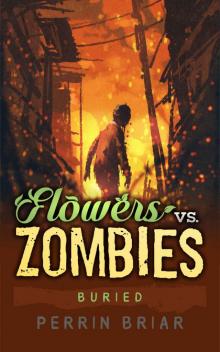 Flowers Vs. Zombies (Book 5) Buried
Flowers Vs. Zombies (Book 5) Buried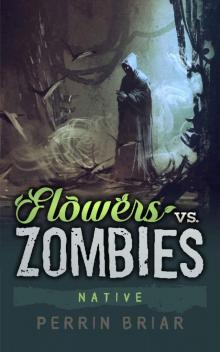 Flowers Vs. Zombies (Book 6) Native
Flowers Vs. Zombies (Book 6) Native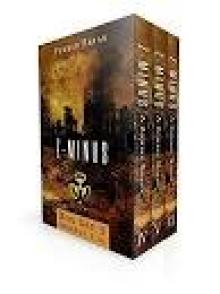 Z-Minus Box Set 2
Z-Minus Box Set 2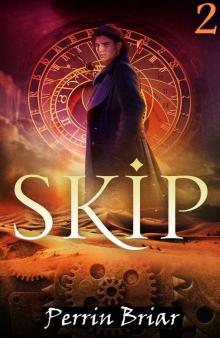 Skip: An Epic Science Fiction Fantasy Adventure Series (Book 2)
Skip: An Epic Science Fiction Fantasy Adventure Series (Book 2) Resistance (Book 1): Juvenile
Resistance (Book 1): Juvenile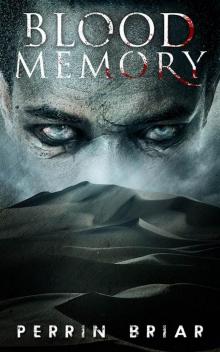 Blood Memory: A Post-Apocalypse Series (Book Five)
Blood Memory: A Post-Apocalypse Series (Book Five) Sink: The Lost World
Sink: The Lost World![Z-Minus Box Set [Books 1-3] Read online](http://i1.bookreadfree.com/i1/03/30/z-minus_box_set_books_1-3_preview.jpg) Z-Minus Box Set [Books 1-3]
Z-Minus Box Set [Books 1-3] Compulsion
Compulsion The Swiss Family RobinZOM (Book 3)
The Swiss Family RobinZOM (Book 3) Sink: The Complete Series
Sink: The Complete Series Expulsion
Expulsion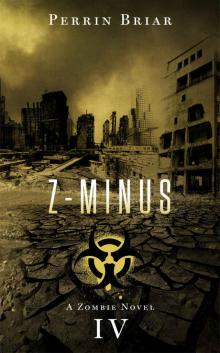 Z-Minus (Book 4)
Z-Minus (Book 4) Resistant Box Set
Resistant Box Set The Swiss Family RobinZOM (Book 2)
The Swiss Family RobinZOM (Book 2) The Swiss Family RobinZOM (Book 5)
The Swiss Family RobinZOM (Book 5)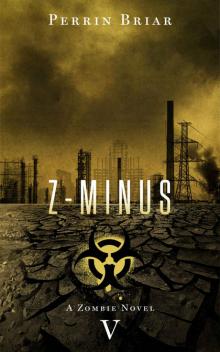 Z-Minus (Book 5)
Z-Minus (Book 5) Resistance (Book 2): Resistant
Resistance (Book 2): Resistant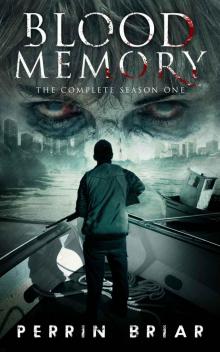 Blood Memory: The Complete Season One (Books 1-5)
Blood Memory: The Complete Season One (Books 1-5)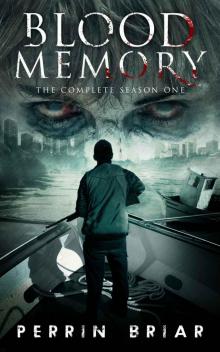 Blood Memory (Season 1): Books 1-5
Blood Memory (Season 1): Books 1-5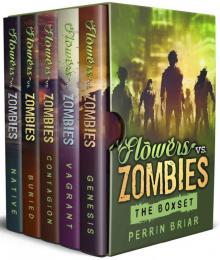 Flowers Vs. Zombies: The Complete Series
Flowers Vs. Zombies: The Complete Series Sink: Old Man's Tale
Sink: Old Man's Tale![Cut Off [Part 1] Read online](http://i1.bookreadfree.com/i2/04/06/cut_off_part_1_preview.jpg) Cut Off [Part 1]
Cut Off [Part 1]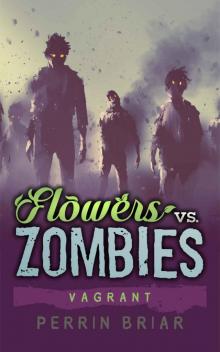 Flowers vs. Zombies (Book 2): Vagrant
Flowers vs. Zombies (Book 2): Vagrant The Swiss Family RobinZOM (Book 4)
The Swiss Family RobinZOM (Book 4)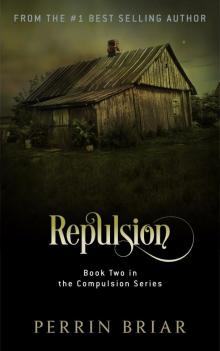 Repulsion (Compulsion Book 2)
Repulsion (Compulsion Book 2)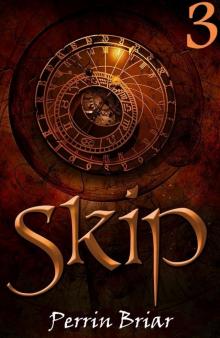 Skip: An Epic Science Fiction Fantasy Adventure Series (Book 3)
Skip: An Epic Science Fiction Fantasy Adventure Series (Book 3) The Swiss Family RobinZOM
The Swiss Family RobinZOM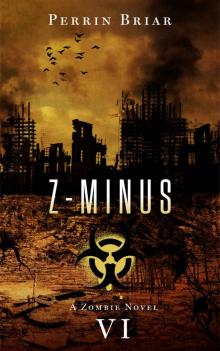 Z-Minus (Book 6)
Z-Minus (Book 6)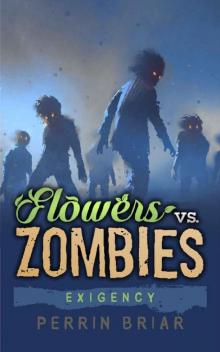 Flowers vs. Zombies (Book 4): Exigency
Flowers vs. Zombies (Book 4): Exigency![[An Epic Fantasy 01.0] Skip Read online](http://i1.bookreadfree.com/i2/04/12/an_epic_fantasy_01_0_skip_preview.jpg) [An Epic Fantasy 01.0] Skip
[An Epic Fantasy 01.0] Skip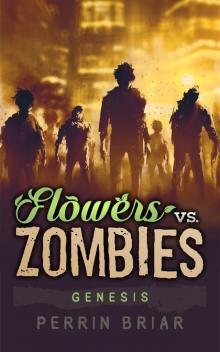 Flowers Vs. Zombies: Genesis
Flowers Vs. Zombies: Genesis